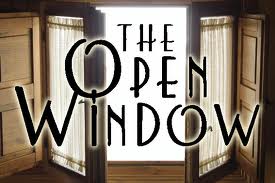"The Open Window" is a short story written by Saki (the pen name of H.H. Munro), a master of the short story form known for his wit, irony, and skillful use of surprise endings. The story revolves around the themes of deception, imagination, and the manipulation of truth.
The story's protagonist, Mr. Framton Nuttel, visits a remote country house seeking respite and relaxation for his nervous condition. He is introduced to the house's young niece, Vera, who proceeds to weave an imaginative and elaborate tale about the tragic fate of her aunt's husband and two younger brothers. Vera explains that they had gone out hunting three years ago and never returned, leaving the window open in the hope that they would come back someday.
Unbeknownst to Mr. Nuttel, Vera's story is entirely fictional, carefully crafted to deceive and amuse herself. Her manipulative storytelling plays on Mr. Nuttel's vulnerability and anxiety, making him believe in the veracity of the tale.
As the story unfolds, Vera sets the stage for the punchline of the narrative. She dramatically points outside the open window, claiming to see the ghosts of the departed men. This revelation terrifies Mr. Nuttel, who, in his fear, rushes out of the house, convinced he has witnessed supernatural occurrences.
The twist comes when the reader discovers that the three men Vera spoke of are, in fact, alive and well. They return to the house, having only gone out for a simple stroll. Vera's artful manipulation of truth and her imaginative storytelling lead to a humorous and unexpected conclusion, leaving Mr. Nuttel bewildered and embarrassed.
"The Open Window" is a masterfully crafted short story that highlights Saki's skill in employing irony and deception. The tale not only entertains readers with its clever plot but also explores the human propensity to believe in what is presented to them without verifying the facts. Saki's portrayal of Vera as a clever and mischievous young girl challenges traditional notions of innocence, as she adeptly exploits Mr. Nuttel's vulnerability for her amusement.
Ultimately, "The Open Window" serves as a commentary on the power of imagination and the fine line between truth and fiction. Saki's use of humor and irony makes the story a timeless and enjoyable read, showcasing his ability to create engaging narratives that continue to captivate and entertain readers to this day.






0 Comments